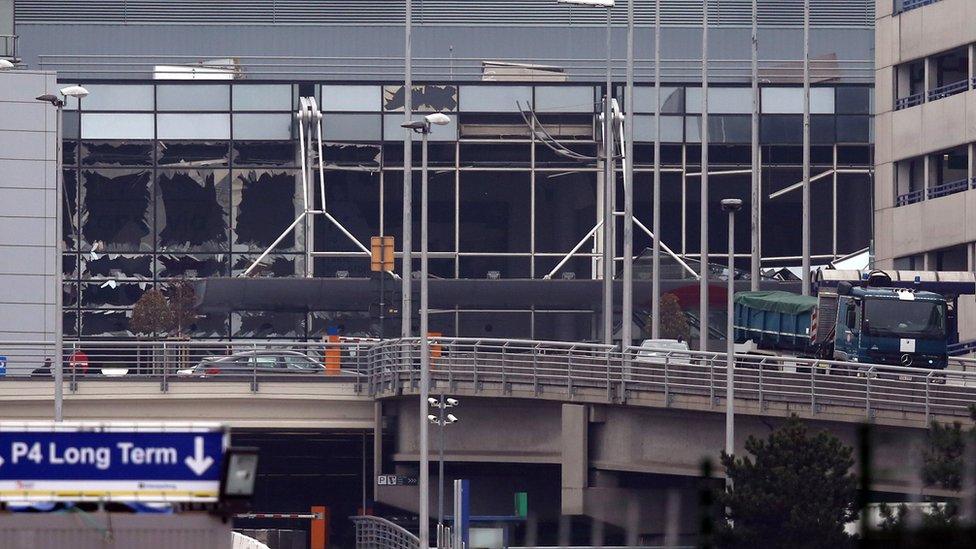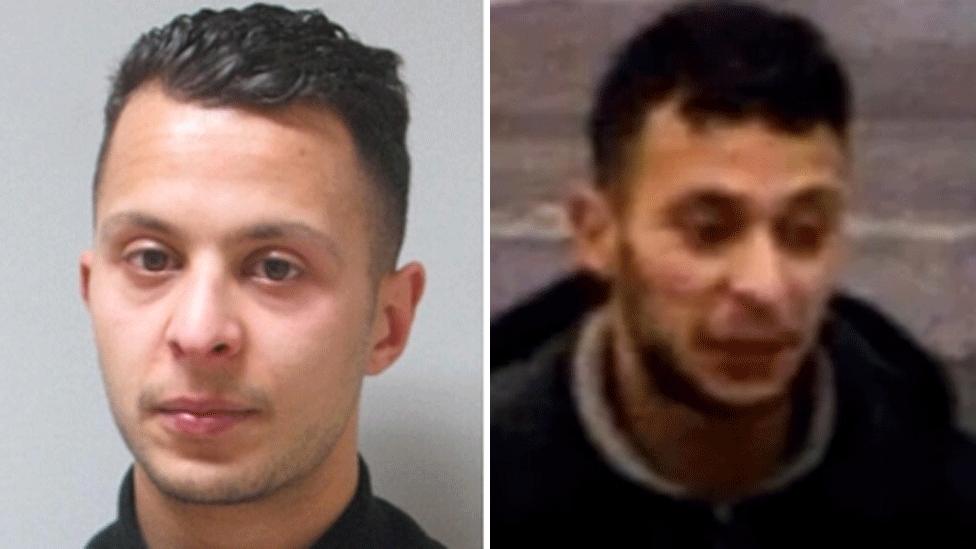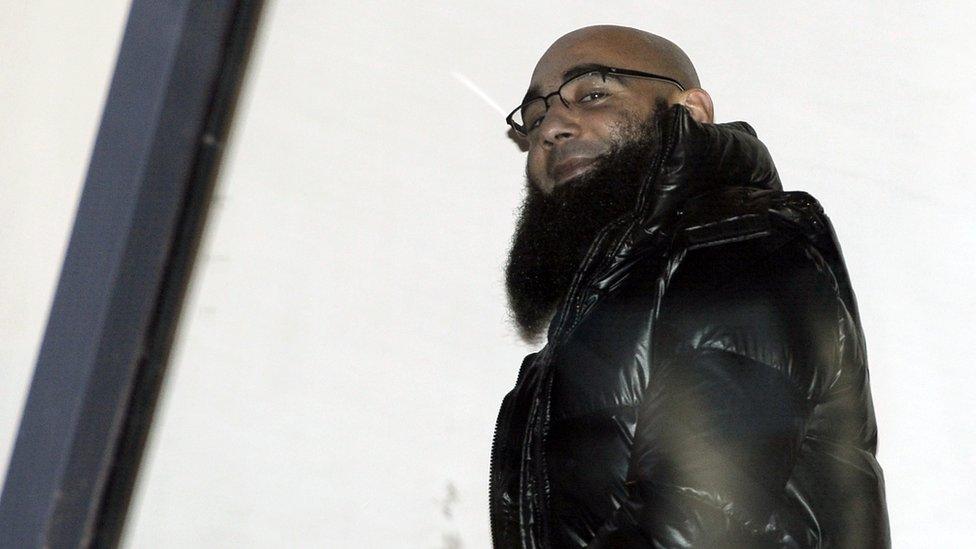Why have IS jihadists targeted Belgium?
- Published

The first bomb struck Zaventem airport at around 08:00, little over an hour before the metro attack
In little more than an hour on Tuesday, Brussels was struck twice at its very heart. First in the departure hall of Brussels airport and then in a metro train at Maelbeek in the Belgian capital's European quarter.
Only days before, Belgium's security forces had achieved decisive successes in their bid to take down the network involved in the 13 November attacks in Paris.
Mohammed Belkaid, most likely a ringleader in the gun and bomb attacks, was killed during a police raid on a suspected safe house in Forest. Next to his body were a Salafist book, a Kalashnikov and a flag of jihadist group Islamist State (IS). The police were lightly armed and never saw others escape over neighbouring roofs.
Days later Salah Abdeslam, a key suspect in Paris, was arrested in Molenbeek, after Belgian media spread reports that his fingerprints had been found on a glass of water in the Forest safe-house.
The Belgian government reacted with barely concealed delight: they believed they had finally wrapped up the network involved in the Paris attacks.

Salah Abdeslam was captured in Molenbeek on 18 March, four days before the Brussels bombings
So why was Brussels targeted on 22 March and how have IS jihadists been able to carry out their attacks?
After Abdeslam's arrest, rumours spread that he might co-operate with Belgium's justice department even before he did.
What is likely is that the same IS network that planned and executed the Paris attacks decided to expedite attacks that had already been planned in Belgium.
As with Paris, these would probably have taken months to organise.
At least 31 civilians were killed and another 271 were wounded, some severely. Emergency doctors said the shrapnel used in the explosives caused devastating injuries.
IS followed one of their proven strategies, deployed in earlier attacks:
The ultimate aim was to kill as many people as possible. The effect of such attacks is, as always, to be found in what al-Qaeda ideologue Abu Bakr Naji described as "tawahhush" (savagery or chaos). The idea is to destabilise society, create disorder and chaos and take profit from it.
IS thrives on chaos and disorder and, in Belgium, hopes to drive a wedge between Muslims and non-Muslims.
In a way, they hope for what Samuel Huntington described as the clash of civilisations. And by creating a sphere of Islamophobia, they seek to create a fertile breeding ground.
Looking at how Islamist networks in Belgium have operated, there has always been one grievance they cite: the feeling that Belgium has treated them as second-class citizens.
The ban on wearing the full face veil in public and the fact that ritual halal slaughter of animals is no longer allowed on private grounds have been named as reasons to leave the country by Belgian jihadist fighters.
At the start, some went to fight Syrian President Bashar al-Assad while others were enticed by family or friends.
Now they leave to live, fight and die for the IS "caliphate".
The most active networks in Belgium were Sharia4Belgium (with 79 ex-members in Syria or Iraq) and the Islamist cell around Khalid Zerkani (45 recruits including some of the Paris attackers).

Sharia4Belgium leader Fouad Belkacem was jailed for 12 years in 2015 and the judge said the organisation was a "terrorist group"
Their networks worked as catalysts and it is only because groups like these were active that Belgium now has per capita the highest number of jihadists from Western Europe.
And in both the Paris attacks and the Brussels bombings, at the core of the Islamist cells were mostly Belgian or Belgium-based IS fighters.
It would be easy to say the Belgian security forces made errors in their inquiry, however it is certain that no effort was spared in investigating the jihadist networks.
Although the authorities always appear to be a few steps behind the IS networks, Belgium may not be to blame. Neighbouring countries may have failed to share essential information.
Initially, Belgium was successful, interrupting an IS cell of Belgian jihadists in Verviers in January 2015. But that has changed with the Paris and Brussels attacks, and the threat is probably not over yet.
It is highly likely that even now other IS sleeper-cells are waiting for the signal. More attacks may follow, whether in Belgium, France, the Netherlands or the UK.
We will have to learn how to cope with a constant terror threat and above all learn from what went wrong.

Pieter Van Ostaeyen is a historian and analyst on jihad in Belgium